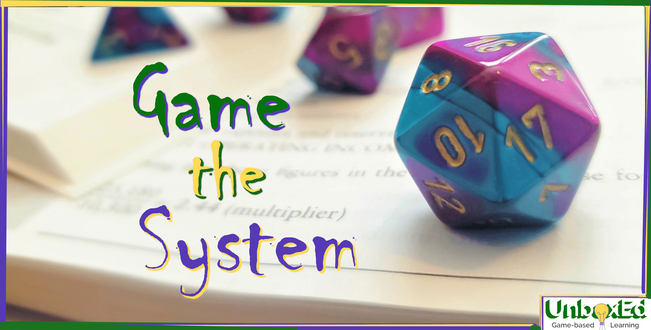|
Democratization of Rules The open discussion – and agreement – of rules, culture, and expectations makes one feel as if his or her voice and ideas are valuable. This reinforces a team mentality and an intrinsic motivation to fulfill one’s responsibilities within a group. Student Agency Research shows that students retain far more knowledge when they engage with content that interests them. So why not put them in the driver’s seat and let them discover how education best serves them, by giving them the freedom and the resources to explore their passions. Evolving Reward Systems Many disadvantaged students have few role models in their lives to demonstrate that education will lead to success. They require frequent and personalized feedback to pioneer their own model of success. Rewards should incentivize a student’s individual strengths instead of punishing their weaknesses. In the game world, this is known as “min/maxing.” Simple methods such as positive language and additive scoring (metrics that start from zero and count upward) provide students with frequent validation, reduce competitiveness, and give students a sense of tangible progress. Creative Problem-Solving Creativity opens up pathways to new forms of self-expression, empathy, and ways of relating to others. Creative thinkers value diverse ideas when approaching a challenge, but also have the confidence to defend their own. Risk-taking Often, the first step toward learning is failure. Any great accomplishment weathered a heap of failures. The goal is to eliminate the fear of failure. Risk-taking must be re-imagined as a necessity of creative problem-solving. Protecting students from failure results in an educational system designed for the lowest common denominator. We want students to fail often and fail better. In our view, wisdom does not come from experience; wisdom is earned from one’s response to experience. Curiosity and Skepticism Without skepticism, there is no science. Equally important to a student’s success is not only the knowledge to answer questions, but the delight in questioning answers. A healthy mistrust of information has never been more important. Communities need members who appreciate new information, but vigilant enough to debate its motives, rationality and reality. Combinatorial Innovation Huh? Basically, it means communities leveraging their networks. With how isolating technology can be, we can’t forget to support social innovation. So-called “soft skills” will become more important and sought out as the world grows more automated. Interacting – not transacting – with each other, exchanging ideas and skills, and creating warm communities will be invaluable. Finding opportunities to be human will become a creative task.
0 Comments
|
SubscribeSign up to receive monthly emails, sharing research and insights into the world of game-based learning. Archives
April 2023
Categories
All
|

 RSS Feed
RSS Feed
